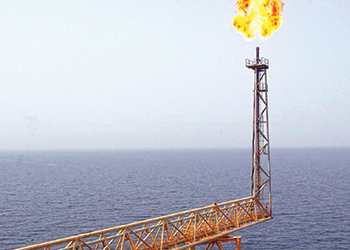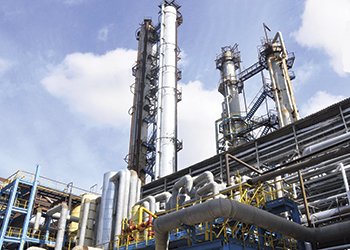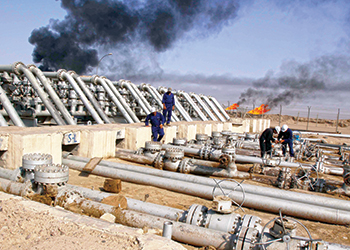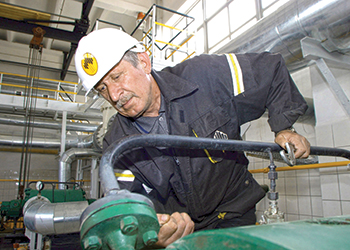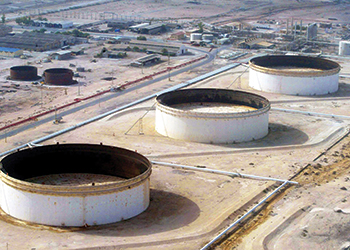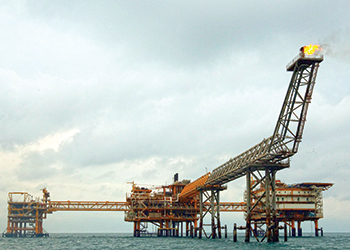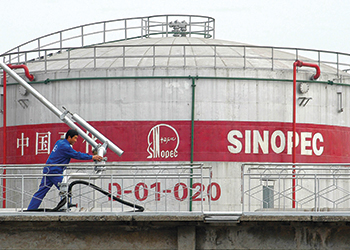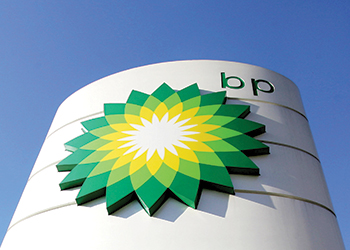
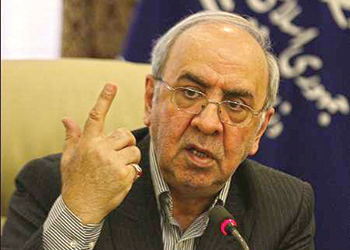 Dr Moazami ... exports will reach 2.3 million barrels
Dr Moazami ... exports will reach 2.3 million barrels
Iran is already in contact with former oil buyers in the European Union – traders such as Vitol Group and big oil producers such as Royal Dutch Shell, Total and Eni – and existing importers in Asia to help absorb the potential new shipments
Iran wants to double its crude-oil exports soon after sanctions are lifted and is pushing to convince fellow members of the Organization of the Petroleum Exporting Countries to renew its quota system, a top Iranian official says.
Both developments could set up a clash with Saudi Arabia, which is scrambling to raise its own export numbers and has opposed the return of production limits on individual Opec members. They underscore how Iran’s full return to the export market would upend the status quo among big oil-producing countries as the Islamic Republic appears to be nearing a deal with six world powers that would lift sanctions in exchange for nuclear-programme curbs.
Should sanctions be lifted, Iran’s deputy oil minister for planning and supervision, Dr Mansour Moazami, says in an interview that Iran’s oil exports would reach 2.3 million barrels, compared with around 1.2 million barrels a day today. "We are like a pilot on the runway ready to take off. This is how the whole country is right now," Dr Moazami says.
Iran is already in contact with former oil buyers in the European Union – traders such as Vitol Group and big oil producers such as Royal Dutch Shell, Total and Eni – and existing importers in Asia to help absorb the potential new shipments, according to the Iranian oil ministry and the companies.
Iran’s oil reserves are the fourth in the world and its production capacity stands at about four million barrels a day--making it the second-biggest producer in Opec if its output were unrestricted. EU sanctions in 2012 banned the import of Iranian oil and prohibited most big oil companies from working with Iran, while American pressure forced Asian nations to reduce their purchases.
The return of Iran’s oil would come at a sensitive time for the world’s oil markets. The price of Brent crude, the global benchmark, has fallen by more than 45 per cent in the past year, trading at around $61 a barrel, as supply outpaces demand by about two million barrels on any given day. Opec nations, especially Iraq and Saudi Arabia, have been pumping at record levels while American production has shown signs of resilience.
Oil-market analysts have expressed scepticism that Iran could increase production as fast as it claims. A senior Opec delegate says some rival producers doubted that Iran had the facilities to reach its previous production levels of 4.2 million barrels a day (mbpd).
Dr Moazami says he didn’t expect prices to fall because global economic growth would drive demand higher. He says Iran’s own forecast for oil prices was now $70 a barrel by the end of 2015.
Dr Moazami says Iran was pushing Opec to return to individual production allocations, also known as quotas. The organization discontinued quotas in 2011 because they caused friction and member countries didn’t respect them anyway. Opec replaced quotas with a collective ceiling – currently at 30 mbpd – but even that is seen as more of a guideline than a limit these days, Opec officials have says, as the group is currently producing more than 31 mbpd.
"Their mechanism right now is not proper. It has to return to its past ability and capacity," Dr Moazami says.
A reintroduction of quotas would need to be unanimously approved by the organisation.
Iran’s oil minister Bijan Zanganeh informed other Opec ministers his country’s production would increase if sanctions are lifted and offered to reinstate the quotas. But the proposal was brushed off by his Saudi counterpart, Ali Al Naimi, who says the output boost shouldn’t be discussed until it materialises and ruled out the return of production allocations, according to Gulf and Iranian officials. Without commenting on any particular country, Dr Moazami says "my personal belief is that Opec will accept" a resumption of individual allocations.



































































